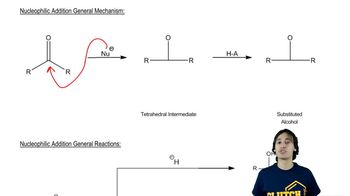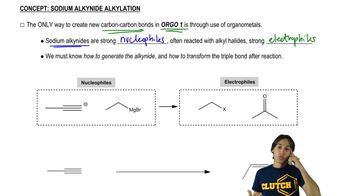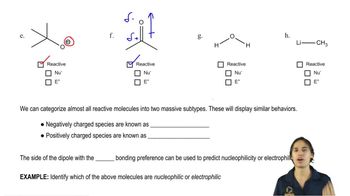A student provided the product of the following reactions, but made a mistake. Identify the mistake, correct the mistake, and suggest a way for the student to avoid that mistake in the future.
(b)
 Verified step by step guidance
Verified step by step guidance Verified video answer for a similar problem:
Verified video answer for a similar problem:



 4:19m
4:19mMaster Understanding how to convert terminal alkynes to alkynides. with a bite sized video explanation from Johnny
Start learning